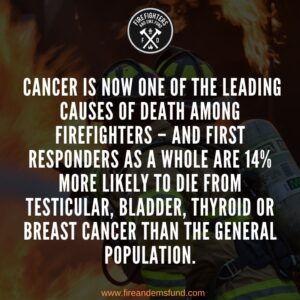In October 2023, Connecticut passed a new law establishing that a cancer diagnosis for firefighters is a “rebuttable presumption” in their occupation. This allows firefighters who receive a cancer diagnosis to access workers’ compensation benefits without spending years of litigation proving the cause of their illness.
Now, firefighters who have been exposed to PFAS (per- and poly-fluoroalkyl substances) from their gear will have the full extent of their injuries recognized.
What are Presumptive Benefits – And Why Do They Matter?
A presumptive disability is a condition legally presumed to have been caused by a worker’s employment duties or workplace exposures unless proven otherwise.
With a presumptive disability law or policy in place, if a worker in a specified occupation (like firefighting) develops one of the covered medical conditions or disabilities (like certain types of cancer), it is automatically presumed that their illness arose out of and in the course of their employment.
When it’s time to claim benefits, presumption makes a huge difference: it shifts the burden of proof away from the worker and puts it on the employer or insurer. This prevents firefighters from spending years chasing medical reports and requesting appeals before they can receive worker’s compensation or disability benefits.
What Are PFAS?
Per- and Poly- fluoroalkyl Substances are a group of chemicals used to make materials fire-proof, grease-proof, or water-repellant. One of their main industrial uses is to manufacture protective fire-proof gear: They can make a standard safety suit fire-proof, insulate it from extreme temperatures, or even wick sweat away.

However, when exposed directly to fire, PFAS can become carcinogenic. When putting out a fire, firefighters constantly inhale and rub against tiny amounts of PFAS. Over their years of service, these small particles can add up.
The result? Cancer is now one of the leading causes of death among firefighters – and first responders as a whole are 14% more likely to die from testicular, bladder, thyroid or breast cancer than the general population.
What Does the New Law in Connecticut Say?
This legislative change is a modification of Chapter 568 of the State’s Workers’ Compensation Act. It slightly alters a few definitions and expands some existing figures. Hidden beneath the legalese, here is what it says:
- It recognizes PFAS as a factor that causes or leads to several types of cancer and cardiac emergencies.
- It acknowledges that municipal firefighters, police officers, and ambulance service members are chronically exposed to PFAS.
For many first responders and their families, this new legislation brings significant peace of mind: should their bodies start displaying the marks of their long-term sacrifice, their loved ones will be provided for. However, this is only one half of the fight.
The next step is to invest in R&D (research & development). After all, not all water-proof materials need to include PFAS. With enough inventiveness, the industry can do much to protect our first responders. Newer and safer materials are available and can be made more cost-effective. Municipalities and local governments must provide workers with reliable and lasting protection, no matter the cost.









